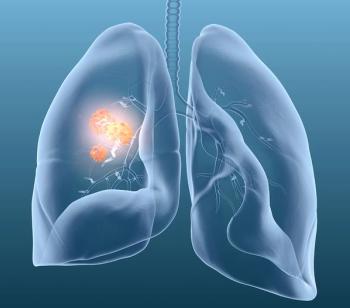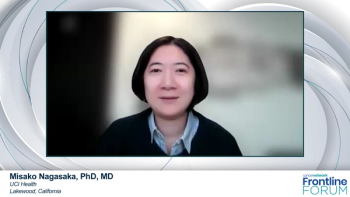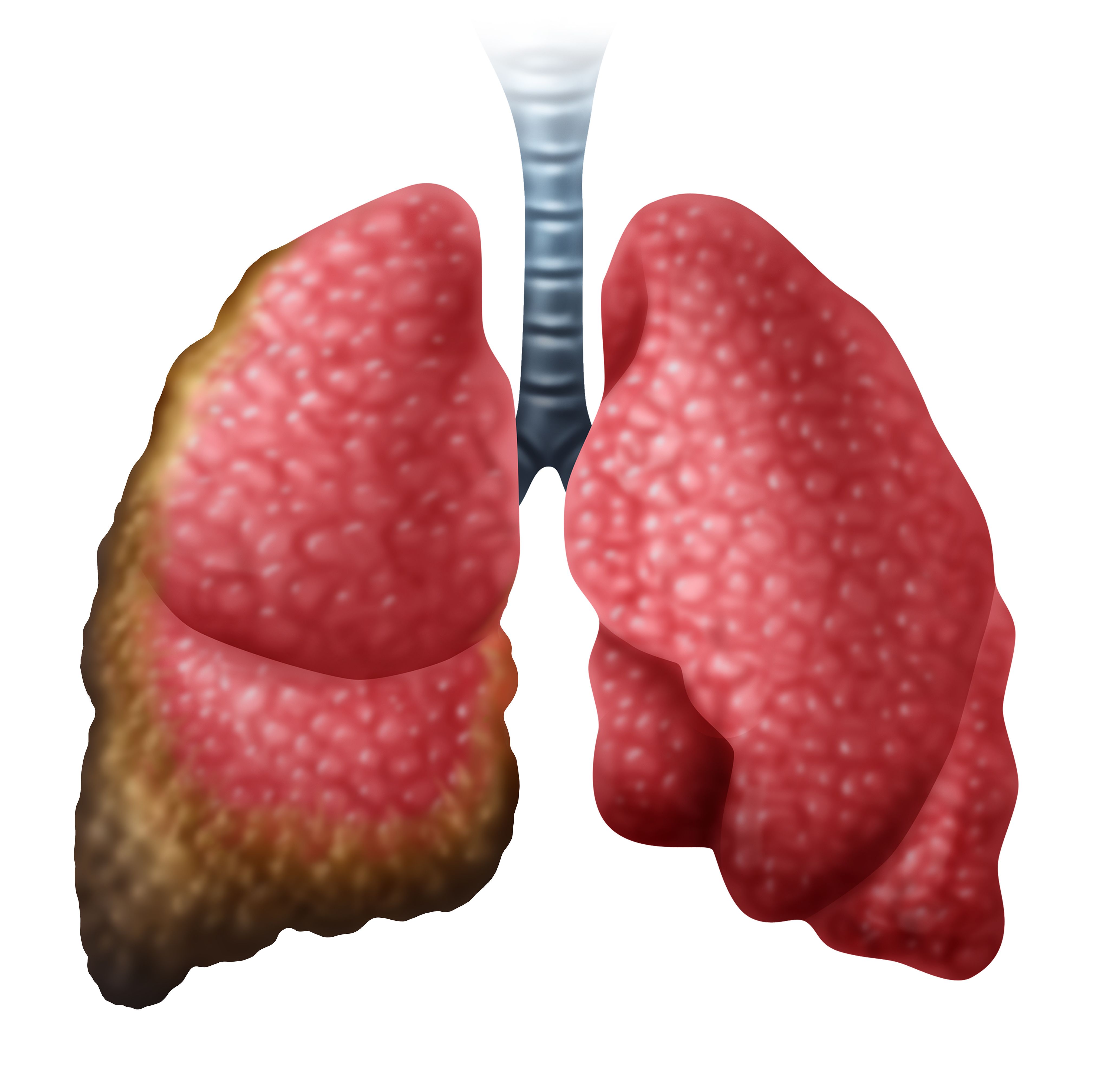
Lung Cancer
Latest News
Latest Videos

CME Content
More News
![“These results and the lack of systemic toxicity observed with [TTFields] provide patients with a promising new treatment option,” according to Joachim Aerts, MD, an investigator of the phase 3 LUNAR trial (NCT02973789).](https://cdn.sanity.io/images/0vv8moc6/cancernetwork/7d7dfad7849391f4be3ebd2cf39c24f5369cfcd1-1200x1176.jpg?w=350&fit=crop&auto=format)
Data from the phase 3 LUNAR trial support the Conformité Européenne Mark for tumor treating fields in metastatic non–small cell lung cancer.

The phase 3 HARMONi-6 trial found invonescimab plus chemotherapy improved PFS vs tislelizumab plus chemotherapy in squamous NSCLC.

In first-line, EGFR-mutated NSCLC, targeted therapies such as osimertinib or amivantamab plus lazertinib are recommended.

A 5-year follow-up of the phase 3 EMPOWER-Lung 1 showed the greatest survival benefits in patients with NSCLC who have a PD-L1 expression of 90% or more.

End-of-life demands card game and mindfulness-based cancer recovery program use may enhance the quality of life for patients with lung cancer.

Multivariate analysis showed consolidative thoracic radiotherapy improved OS/PFS vs control patients with ES-SCLC, with respective HRs of 0.53 and 0.90.

Pooled results from the TRUST-I and TRUST-II trials showed that taletrectinib led to infrequent neurological TEAEs in patients with ROS1-positive NSCLC.

Phase 3 CROWN trial findings suggest that patients with ALK-positive NSCLC may maintain efficacy even after reducing lorlatinib dosing to mitigate AEs.

Surufatinib/toripalimab elicited an ORR of 57.1% in patients with treatment-naïve NSCLC and 15.8% in patients with pretreated SCLC in a phase 2 trial.

A futility analysis showed that ociperlimab was unlikely to reach the primary end point of overall survival as part of the phase 3 AdvanTIG-302 trial.

An expert panel at ELCC 2025 reviews the MARIPOSA trial's implications for first-line therapy in EGFR-mutated NSCLC and broader advancements.

A stronger commitment to tobacco control at the local, state, and federal levels may further improve progress in preventing smoking-related mortality.

Patients with driver gene–negative non–small cell lung cancer who received immunotherapy beyond progression experienced better survival outcomes.

The diagnostic accuracy of radiologists aided by the eyonis LCS AI software was greatly improved compared with when radiologists were unaided.

Panelist discusses how HER2-directed tumor-agnostic treatments are likely to see expanded applications across multiple cancer types, driven by improved biomarker testing and emerging clinical evidence. This approach may become increasingly personalized through enhanced molecular profiling, potentially leading to more precise patient selection and combination strategies.

Panelist discusses how the DESTINY-PanTumor02 study enrolled 267 patients with different tumor types, including endometrial, cervical, ovarian, bladder, biliary tract, and pancreatic cancer.

Panelist discusses how HER2-directed tumor-agnostic therapies represent an emerging treatment paradigm focused on targeting HER2 mutations regardless of cancer type. Current agents such as trastuzumab deruxtecan show promise across multiple tumor types that express HER2, moving beyond traditional cancer-specific approaches. This precision medicine strategy may expand treatment options and improve outcomes for patients with HER2-altered cancers who previously had limited therapeutic choices.

Panelist discusses how the DESTINY-Lung02 trial was a dose optimization study where patients with HER2-mutated non–small cell lung cancer (NSCLC) were randomly assigned to a starting dose of 5.4 mg/kg vs 6.4 mg/kg of trastuzumab deruxtecan (T-DXd). DESTINY-Lung03 was a frontline study for HER2 overexpression in NSCLC looking at different combinations of treatment with T-DXd and immunotherapy agents with or without chemotherapy.

Panelist discusses how HER2 testing evaluates protein overexpression, gene amplification, and mutations. Although breast and gastric cancers typically show overexpression/amplification, other tumors more commonly harbor mutations.

Introduction to HER2-Directed Tumor-Agnostic Approaches

Data from the phase 2/3 KEYNOTE-483 trial support the CHMP’s recommendation for approving pembrolizumab/chemotherapy in the European Union.

Data from the KEYNOTE-483 trial support the FDA approval of the pembrolizumab-based combination in this pleural mesothelioma population.

Georgios Evangelou, MD, MSc, speaks to the potential utility of neoadjuvant capecitabine/temozolomide in well-differentiated atypical carcinoids.

Investigators showcased feasibility of combining pathology findings with deep learning artificial intelligence to speed up biomarker detection and discovery for patients with lung cancer.

The mean number of palliative care visits was nearly halved for stepped-palliative care vs early palliative care in patients with advanced lung cancer.



![“[O]ur findings show that large-scale lung cancer screening is both feasible and effective, and provide a framework for successful delivery of a population-based national program,” according to the study authors.](https://cdn.sanity.io/images/0vv8moc6/cancernetwork/555f5be80532573a6654f0b562c43e11aedf99df-1200x857.jpg)



































